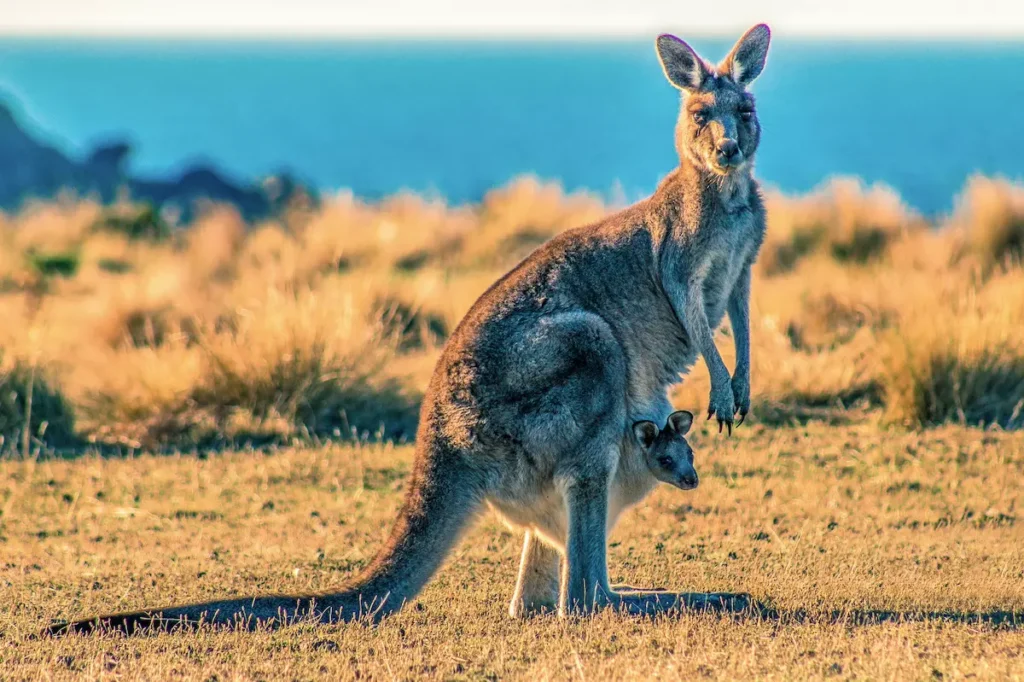U.S. athletic wear brand announces policy to drop kangaroo-based shoes just days after Puma made a similar announcement, offering the prospect of ending the massive slaughter of kangaroos to make shoes for the world’s biggest sport
Washington, D.C. – Nike, one of the best-known brands in the world, announced today that it will stop using kangaroo skins for its Nike Tiempo and all other shoes in 2023. This action, following a similar announcement from Puma two weeks ago, means that two of the biggest buyers of kangaroo skins are getting out of the business of financing the largest mammalian slaughter of terrestrial wildlife in the world.
“Nike’s announcement that it will end use of kangaroo skins for its athletic shoes is a seismic event in wildlife protection, and tremors will be felt all over the world, especially in Australia where the mass commercial slaughter of kangaroos occurs,” said Wayne Pacelle, president of the Center for a Humane Economy, which announced its “Kangaroos Are Not Shoes” campaign in 2020 to promote ending the use of kangaroo leather in soccer cleats. “Non-animal-based fabrics are athletically and morally superior, and in March we’ve seen two of the three largest brands in athletic shoes pledge to end their use of kangaroo skins and to bring relief to these iconic marsupials in Australia.”

Earlier today, Nike announced in a statement it will debut a new Tiempo Legend Elite made without kangaroo skin — a turnaround for the company’s primary soccer shoe. “The upper has a new material that is a better performance solution and replaces the use of kangaroo leather.” The statement went on to note that Nike “will stop making any product with kangaroo leather in 2023.”
Nike and Puma retiring kangaroo skins and embracing synthetics clinches a trend that has been in place for years. Out of 172 goals scored in last year’s World Cup, 164 came from players wearing synthetic shoes or conventional leather (though synthetics dominated).
“These two announcements amount to a massive victory for the Center for a Humane Economy and its ‘Kangaroos Are Not Shoes’ campaign,” said Natasha Dolezal, senior legal advocate for the Center for a Humane Economy. “Now it’s up to Adidas and the remaining soccer cleat makers to follow suit.”
Each year, around two million wild kangaroos are cruelly gunned down in their native habitat. Killing guidelines are deficient and impossible to enforce in the Outback and in the dead of night when the mass shootings occur. What’s more, commercial shooters are permitted to shoot mother kangaroos even when the joeys are still in their pouch or nursing from their mother. The industry’s commercial code instructs the hunter to then kill the joey by blunt force trauma to the head, which is often accomplished by slamming the joey against the side of a car or another hard surface. If the joey scampers off in fear, evading capture by the hunter, they are certain to die from exposure, starvation, dehydration, or predation.
As part of their “Kangaroos Are Not Shoes” campaign, the Center for a Humane Economy and Animal Wellness Action (AWA) produced a groundbreaking report in June 2020; premiered a 60-second film in February 2021; erected billboards near Nike headquarters in Oregon in March 2021; organized protests not only in California but across the United States and in Australia; and funded the establishment of the International Kangaroo Protection Alliance (IKPA) in April 2021. AWA and the Center have also assisted in the introduction of both federal and state legislation banning the import and sale of kangaroo products — most recently, for example, in Arizona, Connecticut, New Jersey, Oregon, and Vermont. Multiple lawsuits have also been filed in California in the summer of 2022 and early 2023, alleging that soccer retailers are illegally selling cleats made of kangaroo leather in violation of state law.
“We are so pleased that Nike is shedding its skins made with kangaroos,” added Pacelle. “We now hope that this announcement and similar ones will prompt Australia to begin to shut down its ruthless commercial kangaroo-killing industry and spare these animals the cruelty they do not deserve.”

